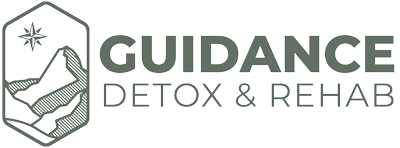Substance use during pregnancy, including drug and alcohol use, poses serious risks to both the mother and her unborn child. However, the process of detoxing from drugs or alcohol while pregnant is complex and requires careful consideration, medical care, and professional guidance.
This article will explore the safety, risks, and treatment options related to detox during pregnancy, providing essential information to help pregnant women and their loved ones make informed decisions about addiction treatment and the health of both mother and baby.
Understanding Detox During Pregnancy
Detox refers to the process of clearing drugs or alcohol from the body, often as the first step in treatment for drug abuse. For pregnant individuals, detox is not just about the mother’s health but also about protecting the developing fetus from the harmful effects of substance use disorder.
Drug and alcohol detox during pregnancy must be approached with caution, as withdrawal symptoms and sudden changes in the body can endanger both mother and baby.
Pregnancy and substance addiction are serious health concerns. It’s important for pregnant individuals struggling with drug or alcohol addiction to seek help from an addiction treatment center, detox program, or qualified medical professional as soon as possible.
Risks of Substance Use During Pregnancy
If the baby is exposed to drugs while in the womb, they face an increased risk of birth defects, poor fetal growth, preterm birth, stillbirth, and neonatal abstinence syndrome (NAS), a condition where newborns experience withdrawal symptoms due to drug exposure in the womb.
Alcohol use during pregnancy is linked to fetal alcohol spectrum disorders and an increased risk of sudden infant death syndrome (SIDS). For the mother, drug addiction raises the risk of complications, overdose, and challenges in caring for her newborn.
Is Detox Safe During Pregnancy?
Detoxing from drugs while pregnant is possible, but it must always be done under medical supervision. Unsupervised detox or abrupt cessation, especially with substances like opioids, alcohol, or benzodiazepines, can cause severe withdrawal symptoms, including seizures, dehydration, and preterm labor, all of which can threaten the baby’s health and the mother’s well-being.
Medical detox for pregnant women is designed to minimize these risks, ensuring both mother and unborn child are closely monitored throughout the detox process.

How Does Medical Detox Work?
A medically supervised detox program for pregnant women typically involves gradual reduction of the substance under the care of a medical professional.
For opioid use disorder, medication-assisted treatment (MAT) is often the standard of care. Alcohol detox and drug detox for other substances may require additional medications and supportive care to manage withdrawal symptoms safely.
Special Considerations by Substance
When it comes to opioid use during pregnancy, MAT with methadone or buprenorphine is generally preferred because it stabilizes the mother and reduces the risk of relapse. Detoxification from opioids may be considered in select cases, but only under strict medical supervision due to the increased risk of complications.
Alcohol detox during pregnancy is particularly risky because sudden withdrawal can cause seizures and other life-threatening complications.
Benzodiazepines also require a gradual tapering process under medical care due to the high risk of severe withdrawal symptoms.
For other substances, such as marijuana or stimulants, the approach to detoxing from drugs while pregnant is more individualized. Medical supervision remains essential to protect both mother and baby.
When and How To Seek Help
Pregnant women using drugs or alcohol should never attempt to detox alone. Consulting a medical professional, such as an addiction specialist or OBGYN, is critical. A treatment center or detox center with experience in addiction during pregnancy can provide a tailored treatment program, including drug testing, counseling, and ongoing medical care.
Benefits of Medically Supervised Detox
Medically supervised detox during pregnancy reduces the risk of complications for both mother and unborn child, decreases the likelihood of neonatal abstinence syndrome with proper management, and provides support for relapse prevention and long-term recovery. As a plus, it also connects women to addiction treatment programs and ongoing support, which are vital for sustained sobriety.
Challenges and Controversies
While some pregnant individuals may wish to detox completely, most medical guidelines recommend maintenance therapy, especially for opioid use during pregnancy, because the risk of relapse and its consequences can outweigh the benefits of detox.
Detox for pregnant women must be individualized, with some cases requiring inpatient care at a rehab center or specialized detox facility.
Final Thoughts from Guidance Detox and Rehab
Detoxing from drugs or alcohol while pregnant is possible, but it is never safe to attempt without medical supervision. With the right support, it is possible to detox safely and give both mother and baby the best chance for a healthy future.
At Guidance Detox and Rehab, we understand that safe detoxing while pregnant is a delicate and critical first step toward lasting wellness for both mother and baby. In our serene and supportive environment, we offer expert-guided, medically supervised detox programs specifically designed to ensure the safety and health of pregnant women. Our compassionate care helps support your body’s natural healing process while prioritizing the well-being of you and your unborn child, restoring clarity, strength, and peace of mind during this important journey.
